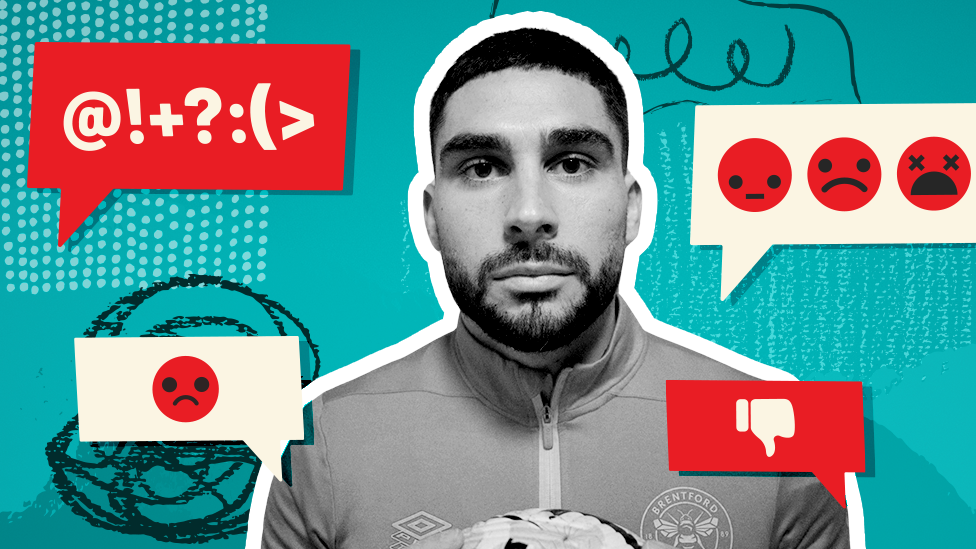Eni Aluko says X allows people to 'vomit hatred unchecked'
- Published
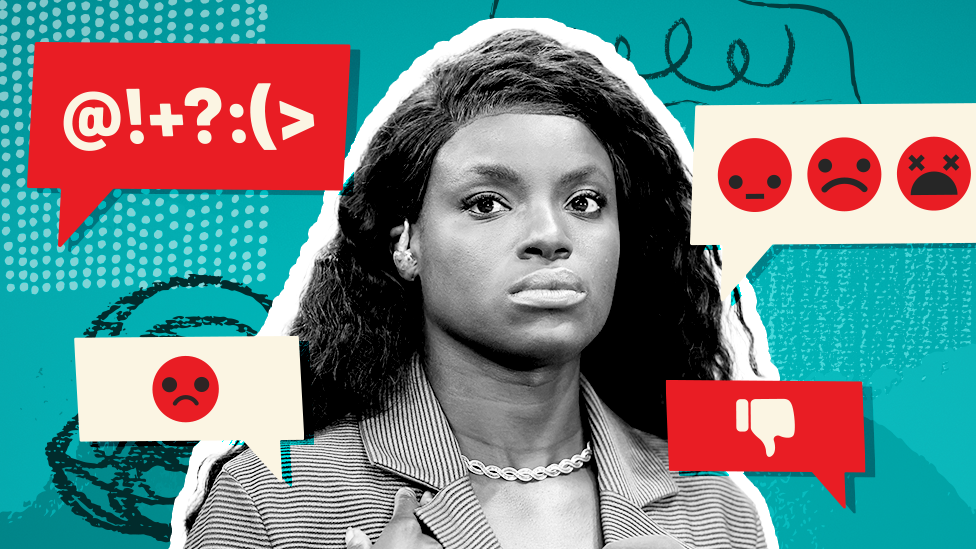
Former England striker and broadcaster Eni Aluko has criticised Elon Musk's X social network for allowing people to "vomit their hatred unchecked".
Aluko, who faced a wave of abuse after ex-footballer Joey Barton attacked her punditry, told the BBC that black women are being systematically targeted.
The BBC tracked down one of the trolls motivated by Barton's posts.
He said he shared hateful comments about women such as Aluko because they are "just an easy target".
Speaking exclusively to BBC Radio 4's Why Do You Hate Me? podcast, Aluko said she had repeatedly reported Barton's posts to X, formerly known as Twitter, but it has taken no action.
She said: "Online abuse from someone with millions of followers feels like the world's caving on you."
X did not respond to requests for comment. The social media company says publicly it does not allow "direct" attacks on the basis of race or gender. It says it is "committed to combating abuse motivated by hatred, prejudice or intolerance".
Joey Barton also did not respond to points raised by the BBC.
Barton had posted repeatedly about Aluko, triggering this abuse, after her coverage of an FA Cup match in January. The first of his posts said she and another female pundit, Lucy Ward, were the "the Fred and Rose West of football commentary", referring to the Gloucestershire serial-killer couple.

Aluko played for Chelsea and England, scoring 33 international goals in 102 games before retiring in 2020. She now has an established broadcasting career. But her success has been accompanied by a wave of hate on social media.
The day after Joey Barton began his attack on her, she said the online response made her afraid to leave her house.
"I started to get quite anxious because you get that feeling of being in a fishbowl. Everybody is sort of thinking, talking about you and reading the horrific stuff that's been said about you," Aluko said.
"I'm not going to leave my house. I'm going to disguise myself when I go and get milk from the supermarket. Why should I have to do that? But this is the real life impact of online abuse and nobody's stopping it."

Eni Aluko told the BBC that influencers were using hatred to promote their media brands
Aluko's employer, ITV, issued a statement condemning the abuse, but it continued to escalate. Some of it mentioned her family and details about where they live.
Aluko is now bringing a libel claim against Barton over his posts about her and her family.
The posts from Barton triggered a wave of hate, activating lots of other users who target women in public life with angry comments. The messages they sent often began with a comment about football, but quickly moved to personal attacks - frequently about gender and race.
Examining the messages she received, I have found posts that were both racist and misogynistic - using gendered slurs, threatening violence and sharing monkey emojis.
"It's an attempt to really project inferiority on women and on black people. Because it's not just specific to football, right? This is a generic experience," Aluko said.
"You might have a black woman in a position of power and influence. The minute she gets something wrong, it confirms that she was never meant to be there in the first place."
Aluko said X gives racism and misogyny greater reach and does not tackle hatred.
Joey Barton's posts were given more prominence by X because of his blue tick. This used to be a free feature to verify users' identities, but now has to be paid for and means the social network's algorithms promote those users' content more.
Other smaller accounts then appeared to be emboldened by Barton's posts, sending out explicitly abusive messages to Aluko.
"This is a societal issue where we have a platform [X] that is allowing people to vomit their hatred unchecked," she said. "And then on top of that, I think there is an intention to monetise and incite more hatred to promote a podcast."
Aluko was referring to Joey Barton's recently launched podcast, but she also believes there are other media figures targeting women for abuse online to grow their profiles.
Influencer Andrew Tate, for example, has racked up millions of views and followers by promoting a lavish lifestyle, and in his case, violence against women. He is currently being investigated for rape and human trafficking in Romania, which he denies.
"I see now there's a glorification of men that hate women. That's really dangerous," Aluko said.
I tracked and messaged some of the accounts that began abusing Aluko after Joey Barton's posts.
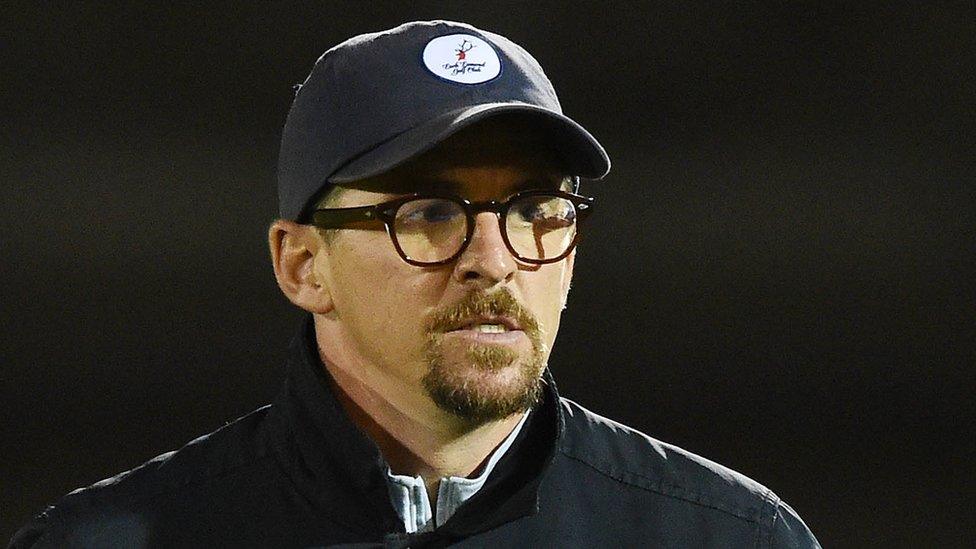
Joey Barton, who was sacked as Bristol Rovers' manager in October, launched a podcast last month
One person behind an anonymous account agreed to speak to me in person. We're calling him James. He's in his early 60s and told me he moved from London to the countryside over a decade ago and has recently retired.
He asked me and my team to meet him in a car park and then we drove to an office located near a farm.
"Please don't think I'm anti-women because I'm not, you know?" he told me. But just moments earlier he had said, in reference to female pundits: "No-one wants to know what a woman's got to say."
James is particularly bothered by women commenting on men's football. "Football has been my life," he said. "Men don't really want women involved in men's football. It just spoils [it]. No-one can take women seriously".
He told me he started using social media in lockdown. James came to it via mainstream sports sites - where he would see that a player or pundit had commented on social media - and decided to sign up to join the conversation.
He described going on his iPad in the evening to relax, before then sharing abusive comments. He said it's just "human nature" to share the posts he does and that with a bit of "baiting of someone you might get a response".
His account is anonymous. It doesn't use a photo or his real name. Using your real identity means "you're more accountable for your comments", he said.
James posts repeatedly taking aim at female footballer commentators, and other women in public life including politicians. He talks about their gender, race and sexuality. Some of the rhetoric is aggressive and abusive.
James claimed there was no pattern to the abusive messages he sent. I asked him about why he seems to express criticism more readily of women than men on X. He said it's because it generates more conversation.
"I don't feel threatened. I don't, you know, it's just an easy target I suppose. If you look at it that way," James said.

One of the BBC's most trolled journalists, Marianna Spring, dives into her inbox and investigates extraordinary cases of online hate. She meets the people at the heart of these conflicts, and in some cases brings them together, to see if understanding - even forgiveness - is ever possible.
Listen now on BBC Sounds, watch on BBC iPlayer. Read previous instalments of the online series on the Madeleine McCann case, London Mayor Sadiq Khan and Premier League troll-hunters.

He admitted that his son has challenged his online behaviour, accusing him of being a troll. "I didn't know what a troll was," James said. After looking up the word, he argued about it with his son.
"Since then, I have sort of not gone on it so much because I feel as if I don't want to be labelled," he said.
I challenged him about one post he had shared, which was sent after Aluko said she had to leave the country because she feared for her safety. He had written: "Let's hope Eni Aluko is hiding in the GAZA STRIP".
He posted this when Gaza was under heavy bombardment from Israeli forces and many people were being killed.
He said he now thinks he went too far and would not post a message like that again. "I shouldn't have said it. I was thinking it's quite funny, but it's not," he said, because it made light of her safety concerns and the suffering of people in Gaza.
James also acknowledged it is wrong to hound someone off social media, preventing them from exercising their right to free speech.
Since having that conversation with James, I have tracked his account and he doesn't seem to have posted anything offensive about Aluko. However, he has taken aim at other female pundits and celebrities.
"This is a real issue that is going unchecked," Eni Aluko told me. She said there needs to be consequences for trolling online, like immediate suspensions for hateful posts.
"There has to be something that is going to create a human deterrent. You can't just be out there saying whatever you like about people who can internalise that and do something really tragic."
- Attribution
- Published17 January 2024
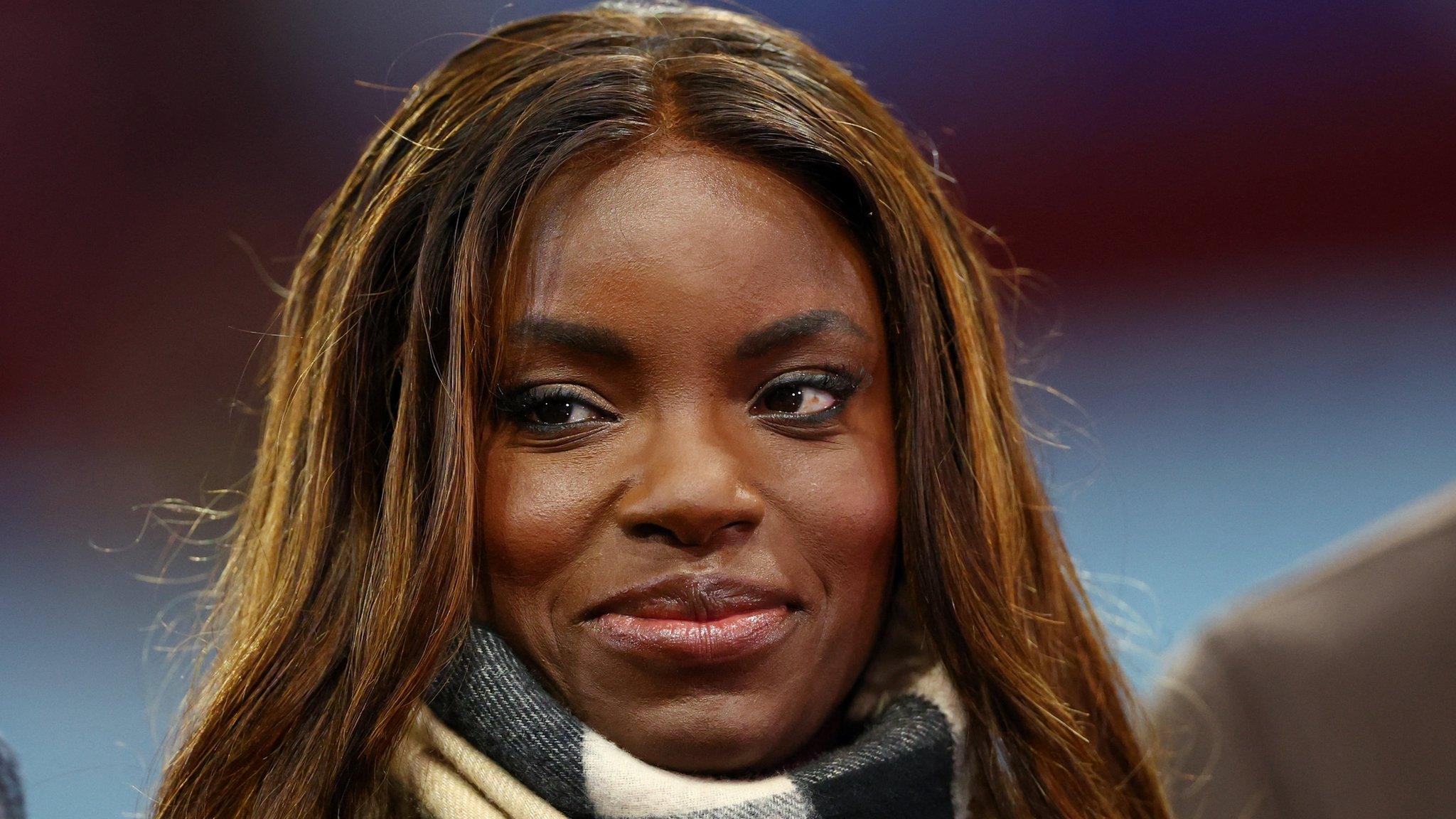
- Published30 January 2024
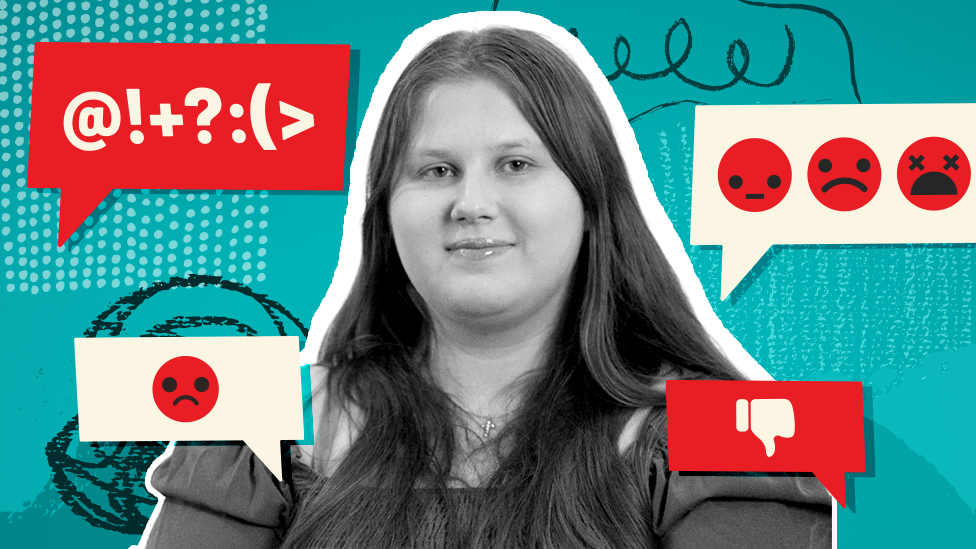
- Published13 February 2024
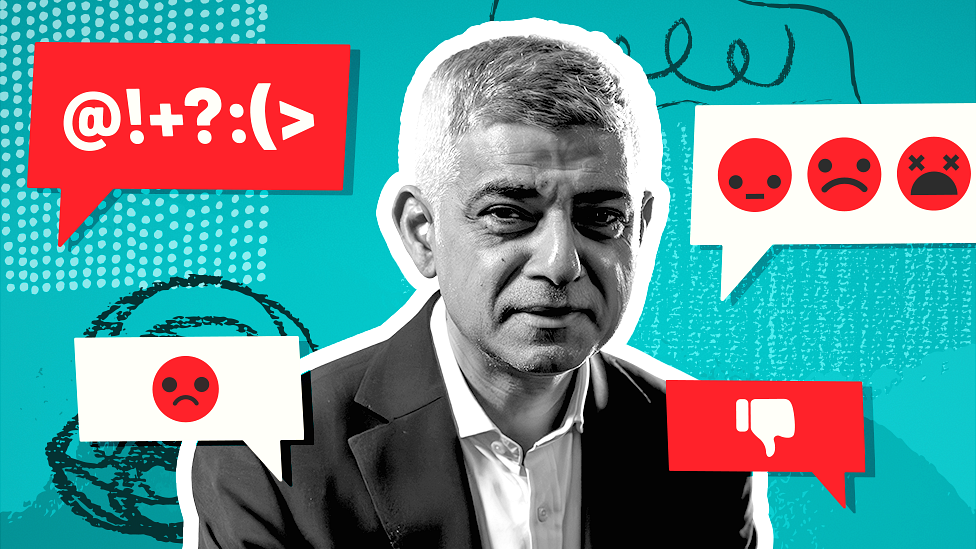
- Published21 February 2024
